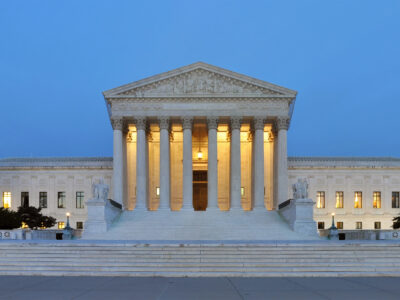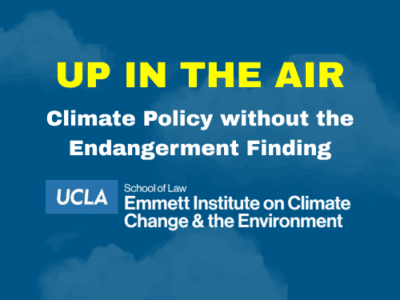Permitting Reform as Policy Stability
Compromise Congressional legislation could dampen the swings of Presidential regulatory policy
I’ve noted earlier the problems that rapid swings in regulatory policy at the Presidential level have caused over the past 12 years, swinging from Obama to Trump I to Biden to Trump II. And, as in so many other ways, the second Trump Administration is ramping up the swings to a whole new level, with aggressive efforts to short-circuit normal administrative law and judicial review processes to effect regulatory change (such as this proposed revision to the regulations implementing the Endangered Species Act).
The problem is that these swings are not facilitating the kind of investment that we need to advance addressing our country’s urgent challenges, including climate change, a potentially significant increase in electricity usage, rebuilding critical manufacturing goals, or ecological restoration efforts. The rapid swings, in other words, serve little to advance any of the agendas that either party advocates for. The impact of these swings on renewable energy projects, for instance, has been significant. (Even the administration’s “energy dominance” policy goal, focused primarily on fossil fuels, is being harmed by the policy uncertainty.)
Addressing this dynamic is challenging. The move towards greater relative Executive control over policy, and the resulting swings in policy, are the result of a confluence of political and legal factors, including gridlock in Congress because of a dramatic increase in the use of the filibuster by both parties and an increasing partisan polarization in terms of policy. Solving those broader political dynamics is no small task, if it is even feasible. But there are some steps that can be taken that might ameliorate the situation somewhat.
One option might be for Congress to take incremental actions that provide more constraint on Executive policymaking discretion, constraints that provide some sort of bipartisan compromise on key agenda goals. Such legislation, if it is enacted, would restrain the swings of Presidential policymaking.
The various proposals for permitting reform that were floated last Congress are examples of what might be possible here. For instance, the bill I discussed last fall would have mandated both minimum levels of renewable energy leasing and permitting on federal lands as well expedited approvals of liquid natural gas terminals. Such a deal could have constrained the ability of the Trump Administration to try and stop wind farm permitting both on federal lands as well as offshore.
There are limitations to this approach. It probably needs to be relatively small bore so it can stay low profile. Otherwise, the incentives for some partisan actors to blow up a compromise in return for political benefits in (for instance) primary elections, a dynamic documented in recent political science literature, may become too strong. The second Trump Administration, in its unprecedented and aggressive push to expand executive powers, is quickly burning up the trust in the American political system that, for instance, the Executive Branch will comply with Congressional mandates and court orders. And of course, the substance of any compromise will be fraught, difficult to negotiate, and inevitably leave all actors unhappy.
This approach also depends on legislation continuing to be difficult to enact. It is the very stickiness of legislation that means that legislative compromises of this sort are approaches that will increase policy stability relative to Executive action. If, for instance, Congress continues to chip away at the filibuster and eventually eliminates it for substantive legislation, policy instability in the United States might go up substantially, at least initially. But until then, permitting reform may be a fruitful avenue to pursue to overcome the political gridlock in American that has, ironically, facilitated policy instability.







Reader Comments